|
Introduction For years, I struggled with the pressure of choosing a "calling," a one-dimensional career path that society seemed to dictate. Like many of you, I’ve been given the curiosity of interests across various fields—writing, digital design, health and nutrition —and settling for just one felt like tearing pages out of a book and reading only a fragment. Then, I stumbled upon the term "multipotentialite," it was like someone had finally switched on the light. The First Signs Growing up, I was that kid who wanted to be a chef one day and an interior designer the next. The world was my playground, filled with endless curiosities that beckoned to be explored. While others seemed to focus on specialised interests, I found myself diving into books about crafts, science, adventure, and even cookbooks. Facing Societal Expectations However, childhood freedom soon gave way to societal expectations in adulthood. Everywhere I looked, people seemed to be narrowing their focus, diving deep into their chosen professions, and labelling themselves with singular identities. "I'm a lawyer," "I'm a teacher," "I'm an engineer," they would say. Amidst all this, I felt like an outsider—a Jack-of-all-trades but master of none. The ‘Aha!’ Moment It wasn't until I read an article about multipotentiality that I found my tribe. There were people like me—curious, passionate, and unwilling to confine themselves to a singular pursuit. Discovering this concept was a revelation. It gave me the framework to weave my diverse interests into something meaningful and uniquely mine. It was like finding a name for a phenomenon I had experienced but couldn't articulate. I wasn’t scattered or indecisive; I was a multipotentialite, a SkillWeaver. The Rise of the SkillWeaver Becoming aware of my multipotentialite nature led to the concept of SkillWeaving—a dynamic way to interlace multiple skills, passions, and interests into an integrated tapestry. This realisation helped me not only accept but also celebrate my diverse interests. I could be a writer who utilises technological tools to tell stories, a nutrition specialist who integrates the arts to communicate wellness, and more. The Journey Ahead Life as a SkillWeaver is an exhilarating journey of perpetual learning and unlearning. It’s about understanding that you don’t have to be just one thing; you can be many, all at once. It's a journey where your talents don't compete; they collaborate. Where your skills don't stifle each other, they amplify. Conclusion Discovering my multipotentialite nature was like an awakening. It empowered me to step out of societal constructs and embrace the multiplicity that has always been my authentic self. If you're tired of trying to fit into boxes, labels, or confined career paths, maybe it's time for your own awakening. Maybe it’s time for you to discover the SkillWeaver within. About the Author
Monika Baechler, a SkillWeaver, writer, artist and nutrition specialist. I'm passionate about helping others discover their inner SkillWeaver and explore the exciting landscapes of their diverse talents.
0 Comments
Overall, "The Book of Five Rings" emphasizes the importance of flexibility, adaptability, and a clear, focused mind in combat and life. Furthermore, it stresses the importance of understanding and mastering martial arts principles and applying them to all areas of life. Musashi's ideas are based on his experience and observation rather than on traditional teachings or theoretical concepts and emphasize the importance of constantly striving to improve one's skills and understanding.
Video to this Post!
Chapter 1: Introduction In the introduction, Musashi explains his warrior background and reasons for writing the book. He emphasizes that his ideas are based on his experience and observation rather than traditional teachings or theoretical concepts. Musashi also stresses the importance of constantly striving to improve one's skills and understanding rather than becoming complacent or overconfident. Chapter 2: The Ground Book The Ground Book emphasizes the importance of understanding the terrain and adapting one's tactics to the environment. Musashi emphasizes that different terrains require different strategies and that a skilled warrior must be able to adapt to any situation. He also stresses the importance of using the terrain to one's advantage rather than fighting against it. Chapter 3: The Water Book The Water Book uses water as a metaphor to focus on the principles of fluidity and adaptability in combat. Musashi emphasizes the importance of adapting to changing circumstances and using one's opponent's movements and energy to one's advantage. He also stresses the importance of remaining calm and fluid in the face of an opponent's attacks rather than becoming rigid or predictable. Chapter 4: The Fire Book The Fire Book discusses the importance of timing and taking the initiative in battle, using fire as a metaphor. Musashi emphasizes anticipating one's opponent's movements and taking action at the right moment. He also stresses the importance of being fully committed and unafraid of death in combat. Chapter 5: The Wind Book The Wind Book uses wind as a metaphor to explain the concept of "emptiness" and the importance of remaining calm and clear-minded in combat. Musashi emphasizes the importance of not becoming attached to one's ego or emotions but remaining clear and focused in the face of an opponent's attacks. He also stresses the importance of understanding the patterns and rhythms of combat and using this knowledge to gain an advantage. Chapter 6: The Book of the Void The Book of the Void discusses the ultimate goal of martial arts, which is to achieve a state of perfect harmony with the universe. Musashi emphasizes the importance of letting go of one's ego and desires and becoming one with the universe's flow. He also stresses the importance of constantly striving to improve one's skills and understanding rather than becoming complacent or overconfident. 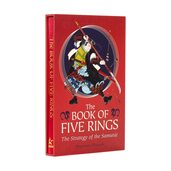
There are many essential quotes and ideas to take away from "The Book of Five Rings" by Miyamoto Musashi. Here are a few key ones:
"Perceive that which cannot be seen with the eye." This quote from the Ground Book emphasizes the importance of understanding and adapting to the environment, even if one cannot see every detail. "When your spirit is not in the least clouded, when the clouds of bewilderment clear away, there is the true void." This quote from the Book of the Void emphasizes the importance of a clear, focused mind in martial arts and life. "To win any battle, you must fight as if you are already dead." This quote from the Ground Book emphasizes the importance of being fully committed and unafraid of death in combat. "If you know the way broadly, you will see it in everything." This quote from the Water Book emphasizes the importance of understanding martial arts principles and applying them to all areas of life. "The important thing in strategy is to suppress the enemy's useful actions but allow his useless actions." This quote from the Fire Book emphasizes the importance of timing and taking the initiative in combat.
Overall, "The Book of Five Rings" teaches the importance of flexibility, adaptability, and a clear, focused mind in combat and life. It emphasizes the importance of understanding and mastering martial arts principles and applying them to all areas of life.
Hope you enjoyed this summary. Much love
Mona For those who aren't familiar with Gratitude, the feeling of gratitude is a deep appreciation for all that we have in life. It's not just about counting your blessings but also meaningfully and sincerely appreciating them. For example, one person can be grateful for having a roof over their head, while another might be grateful they can eat three meals daily.
Gratitude has been shown to benefit our physical health and mental well-being. In addition, studies show that practising gratitude can lower stress levels, improve sleep quality and strengthen relationships with others. In this article, you'll learn about gratitude's science and how it can improve your life! What is gratitudeGratitude is a positive emotion we feel when focusing on the good things in our lives. It's not about focusing on what you don't have but appreciating what you do. Gratitude can be practised in many ways and every day, even if it only takes a few seconds to pause and reflect on all the great things in your life. When we practice gratitude, we live happier lives because we feel more satisfied with our current situation. How to practice gratitudeThe best way to practice gratitude is by keeping a gratitude journal. This can be done in several ways, like writing down your grateful thoughts on paper or typing them up and saving them as a text document. Alternatively, you can use an app like [the Gratitude App], which allows you to record your experiences and emotions over time in the form of photos and videos. Having a gratitude journal allows you to reflect on what makes you happy - whether it be a memory from the past or something extraordinary happening right now! Here are some other ways that I've found helpful in maintaining my sense of gratitude:
Conclusion I hope this article has helped you learn more about what it means to be grateful. Gratitude is a powerful tool that can change your life, but only if you practice it. So what are you waiting for? Get started right now! According to Harvard University, gratitude is strongly and consistently associated with greater happiness in positive psychology research. Gratitude helps people feel more positive emotions, relish good experiences, improve their health, deal with adversity, and build strong relationships. Mona M. Bee Being happy is a choice.
You can decide how your day will go every minute of the day. You can choose to be sad and depressed, or you can choose to get up out of bed and say, "today is going to be a great day!" It's common to wake up in the morning feeling unmotivated, but that doesn't mean anything. Your life isn't as bad as you think; you're in a warm bed. So get up, grab that coffee (or tea) and start your day by making choices that will make you happy! It's important to remember that you can choose how you feel about anything at any time. So if you're feeling down, it's time to start making positive choices like "I'm going to be happy." Or even better, have something positive to say about someone else or compliment them. There are many ways to choose happiness every day. For example, you can choose not to let other people's actions affect your mood or behaviour. You can choose things that make you happy instead of just doing what others want. You can focus on the positive instead of the negative. And you can be grateful for what you have instead of dwelling on what you don't have. Getting angry and wasting energy doesn't do anything but make you unhappy. Anger is a negative emotion that doesn't solve anything and can lead to regret. Instead of getting angry, try to be patient with yourself and others. It's not about what happens in your life that makes you happy, but how you react to it. Baby steps are a great way to get started on the road to happiness. Keep learning how to be happier every day. You can do it! It Where do you start? One way to start becoming happier is to focus on the things you are grateful for. So every day, take a few minutes to think about the things that make you happy or bring you joy. This could be your family, friends, pets, hobbies, or anything else that brings you happiness. By focusing on the positive aspects of your life, you can shift your perspective and start seeing the good in your life. Another way to start becoming happier is to take care of yourself. This means ensuring you get enough sleep, eat well, exercise, and take time for yourself. When you are well-rested and nourished, you will have more energy and a better mood. Exercise, in particular, has been shown to positively affect mood and can help reduce stress and anxiety. Self-care melts into Self-Love. Finally, try to surround yourself with positive, supportive people. Spend time with friends and family who lift you up and make you happy. Avoid negative people or situations that bring you down. By focusing on the positive and surrounding yourself with supportive people, you can become happier. Mona M. Bee Invisible Triumphs: A Journey Through the Mind
In the corners of the mind, there exists a vast expanse. A terrain of thoughts, emotions, memories, each carving its unique winding path, forming an intricate tapestry of human experience. These elements, woven together, constitute the essence of our being. Yet, there are threads darker than others, heavier, demanding attention, demanding to be felt. Mental health, a subject often left unspoken, hides within this rich tapestry. A silent struggle, it mirrors the depth of human resilience. This journey is one of peaks and valleys, filled with battles unseen, wounds untended, and victories uncelebrated. It is an inward journey that may appear lonely but far from solitary. To endure is to be human. To persevere is to defy the odds. Mental health is not a sign of weakness but a testament to strength. A struggle that reveals the raw power of endurance, the courage to continue, and the will to keep fighting. And in this struggle, there is an undeniable beauty. When faced with darkness, resilience becomes our beacon, guiding us through the turbulent sea of fear, anxiety, depression. Each wave faced, and storm weathered contributes to shaping our existence, an ode to survival, a homage to never giving up. Despite the hardships, we must remember that there is always a dawn following the darkest night, a calm after the most devastating storm. The world within our minds can be both our greatest enemy and our most powerful ally. The key lies in understanding, accepting, and nurturing it. This narrative is for the brave, those who refuse to be defined by their struggles. It is a call to embrace the journey, recognize the power within, rise above, persist, and never give up. Mona Bee By now, two warm candles are glowing on the wreath. Pure delight, the first snow of the season has fallen, and the world is transformed into a winter wonderland. The snow-covered hills and trees sparkle in the sunlight, and the air is crisp and fresh. I can hear the cheerful squeals of children sledging down the slopes and the crunch of the snow beneath my feet as I walk. The snow feels cold and soft against my skin, and the air smells clean and refreshing. It's a magical time filled with the season's joy and nature's beauty. - Monika Baechler
If one does not have self-love, there is much that can go wrong in a relationship. Without self-love, one may be unable to set healthy boundaries and communicate assertively, leading to misunderstandings, conflicts, and resentment. One may also be unable to have authentic and honest connections with others, leading to mistrust and disconnection in the relationship. Without self-love, one may depend on others for validation and approval, leading to codependency and enmeshment in the relationship. One may also be unable to be compassionate and empathetic towards others and may hold on to grudges and resentment, which can lead to conflict and resentment in the relationship. Finally, without self-love, one may be unable to have balanced and equal relationships and may be attracted to unhealthy and toxic relationships, leading to unhappiness and dissatisfaction. Lacking self-love can lead to many problems and challenges in relationships and prevent one from having healthy and fulfilling relationships. 10 Reasons why Self-Love is important for a Healthy Relationship
Self-love allows one to set healthy boundaries and communicate assertively in relationships. When one has self-love, one knows one's own limits and needs and can communicate them clearly and confidently to others. This allows one to say "no" when necessary and to stand up for oneself without being aggressive or passive-aggressive. It also means listening to others, respecting their boundaries and needs, and having open and honest discussions about difficult topics. This leads to healthier and more balanced relationships where both partners feel respected and valued. Additionally, being able to communicate assertively helps to prevent misunderstandings and conflicts and to resolve them when they do arise. It also allows for greater intimacy and connection, as both partners can be honest and authentic. Self-love enables one to have more authentic and honest connections with others. When one has self-love, one can be authentic and true to oneself and not pretend to be someone one is not. This allows one to be vulnerable and transparent and to share one's thoughts, feelings, and experiences with others genuinely and sincerely. This leads to deeper and more meaningful connections with others, where one can be oneself and be accepted for who one is. It also means being open to feedback and criticism and willing to learn and grow from them. This leads to more authentic and honest relationships where both partners can grow and evolve together. Additionally, having authentic and honest connections allows for greater trust and intimacy in relationships, as both partners can be open and vulnerable with each other. Finally, it also allows for greater support and understanding, as both partners can be there for each other in times of need. Self-love allows one to be more confident, self-assured, and less dependent on others for validation. When one has self-love, one believes in oneself and one's abilities and has confidence in one's own worth and value. This allows one to feel good about oneself and not constantly seek validation or approval from others. It also means handling rejection and criticism and not letting them define one's self-worth. This leads to more confident and self-assured individuals who are less dependent on others for validation and more able to stand on their own feet. Additionally, having confidence and self-assurance allows for greater independence and self-sufficiency, as one can rely on oneself and one's abilities rather than constantly seeking the approval or validation of others. Finally, it also allows for greater resilience and adaptability, as one can handle challenges and setbacks without letting them shake one's confidence and self-worth. Self-love allows one to be more compassionate and empathetic towards others and to forgive and let go of grudges. When one has self-love, one treats oneself with kindness and compassion and extends that kindness and compassion towards others. This allows one to be more empathetic and understanding towards others and to be able to see things from their perspective. It also means being able to forgive and let go of grudges and not holding on to past hurts and resentment. This leads to more compassionate and empathetic individuals who can build strong and supportive relationships. Additionally, forgiving and letting go of grudges allows for greater inner peace and well-being, as one is not carrying around the burden of resentment and anger. It also allows for greater harmony and harmony in relationships, as one can move past conflicts and misunderstandings and rebuild trust and connection. Self-love allows one to have more balanced and equal relationships where both partners are happy and fulfilled. When one has self-love, one can have more balanced and equal relationships where both partners are happy and fulfilled. This means communicating one's needs and boundaries and respecting the needs and boundaries of others. It also means giving and receiving love and support and not being overly dependent on the relationship for happiness and fulfilment. This leads to happier and more fulfilling relationships where both partners feel valued and supported and can grow and evolve together. Additionally, having balanced and equal relationships allows for greater satisfaction and happiness in life, as one is not sacrificing one's own needs and wants for the sake of the relationship. It also allows for greater trust and connection in relationships, as both partners can be honest and open with each other and support each other in their individual growth and development. Self-love allows one to attract and be attracted to healthy and supportive relationships. When one has self-love, one can attract and be attracted to healthy and supportive relationships. This means being confident and self-assured and not settling for relationships that are not supportive or fulfilling. It also means being clear about one's boundaries and needs and not compromising them for the sake of the relationship. This leads to more satisfying and fulfilling relationships where both partners can support and encourage each other's growth and happiness. Additionally, being able to attract and be attracted to healthy and supportive relationships allows for greater happiness and well-being, as one is not stuck in toxic or unfulfilling relationships. It also allows for greater personal growth and development, as one can learn and grow from healthy and supportive relationships and become a better and happier person. Self-love allows one to be more independent and self-sufficient and less codependent or enmeshed in relationships. When one has self-love, one can be more independent and self-sufficient and less dependent on others for one's happiness and fulfilment. This means relying on oneself and one's abilities and not needing others to validate or approve of one's choices and actions. It also means handling one's own emotions and needs and not overly reliant on others to meet them. This leads to more independent and self-sufficient individuals who are less codependent or enmeshed in relationships and more able to stand on their own feet. Additionally, being more independent and self-sufficient allows for greater freedom and autonomy in relationships, as one is not tied to the needs and expectations of others. It also allows for greater happiness and fulfilment in life, as one can pursue one's dreams and goals rather than being held back by the needs and expectations of others. Self-love allows one to be more self-aware and self-aware and to recognize and address one's own emotional needs. When one has self-love, one can be more self-aware and self-aware and to have a better understanding of one's own thoughts, feelings, and needs. This allows one to recognize and address one's emotional needs and take care of oneself in a healthy and nurturing way. It also means being able to recognize and validate one's own emotions and not dismissing or denying them. This leads to more self-aware individuals who can better take care of themselves emotionally and build healthy and supportive relationships. Additionally, being more self-aware and self-aware allows for greater emotional intelligence and resilience, as one can navigate one's emotions and those of others healthily and effectively. Finally, it also allows for greater happiness and well-being, as one can address one's emotional needs and care for oneself in a healthy and nurturing way. Self-love allows one to be more resilient and adaptable in relationships and to handle conflicts and challenges. When one has self-love, one can be more resilient and adaptable in relationships and handle conflicts and challenges healthily and effectively. This means being able to bounce back from setbacks and challenges and not letting them derail one's relationships or happiness and well-being. It also means adapting and adjusting to changing circumstances and not being rigid or inflexible in one's approach to relationships. This leads to more resilient and adaptable individuals who can navigate the ups and downs of relationships and maintain their own happiness and well-being in the process. Additionally, being more resilient and adaptable allows for greater flexibility and adaptability in relationships, as one can roll with the punches and not be thrown off by conflicts and challenges. Finally, it also allows for greater stability and security in relationships, as one can weather storms and challenges and become stronger on the other side. Self-love allows one to be more authentic and true to oneself and to be happy and content in one's own life, regardless of the state of one's relationships. When one has self-love, one can be more authentic and true to oneself and be happy and content in one's own life, regardless of the state of one's relationships. This means embracing one's own unique qualities and quirks and not trying to fit into a mould that is not authentic to oneself. It also means finding happiness and fulfilment in one's own life and not relying on others or relationships to make one happy. This leads to more authentic and true individuals who can be themselves and be happy and content in their own lives, regardless of the state of their relationships. Additionally, being more authentic and true to oneself allows for greater inner peace and well-being, as one is not constantly trying to be someone one is not. It also allows for greater satisfaction and fulfilment in life, as one can pursue one's own dreams and goals and be happy and content in one's own life. In conclusion, self-love is vital for a healthy and fulfilling relationships. It enables healthy communication and boundaries, confidence, compassion, balanced relationships, attraction to healthy relationships, independence, self-awareness, resilience, and authenticity. Self-love is the foundation of healthy relationships and is essential for happiness and well-being. We would love to hear from you, how do you express self-love? We all want to be happy. But what exactly is happiness? Is it something we can achieve with a simple prescription? Or is it something that involves a bit more work? The answer depends on who you ask. The term "happiness" has been used in different ways throughout history. For example, in the 1700s, "happiness" refers to things like wealth and power. However, more recently, psychologists have defined happiness as an emotional state characterized by positive emotions and feelings. Our brains are programmed to seek positive emotional experiences - we've evolved this way because these experiences are associated with survival. This explains why we feel good when we eat delicious foods or accomplish something challenging like climbing Mount Everest. But psychologists say that some things can make us less happy over time: for example, being in a bad relationship or working at a job we don't enjoy. Happiness is how you feel when you reflect on an experience or a moment in your life. It's an emotion that can't be explained by other emotions, like sadness or anger. We all strive for happiness in our lives, but how do we find it? What do we need to be happy or how can we experience happier states more often? First, think about what makes you happy. Is it spending time with friends and family? Is it taking care of yourself? Maybe it's having a certain amount of safety-net in your bank account or living in a certain place. Once you've figured out what makes you happy, start working toward making those things happen in your life. Happiness is a state of mind. It's not something we have to go out and find, but it's something that comes from within. You should avoid basing your personal happiness on another person like a spouse or partner. Happiness will never be something you buy, but it's definitely a state you can create within. Happiness is feeling good about yourself, your life, and the people around you. It's a moment of pure joy where everything seems perfect at that moment. It's knowing deep down inside that everything will eventually be okay no matter what happens in this world because you're going to survive it all and come out stronger than ever! Happiness is a feeling we all want to experience. We all strive for it, but it can be hard to define. For example, is there one thing that makes us happy or are there many things that make us happy? According to Harvard University, gratitude is strongly and consistently associated with greater happiness in positive psychology research. Gratitude helps people feel more positive emotions, relish good experiences, improve their health, deal with adversity, and build strong relationships. For those who don't know what gratitude is, the feeling of gratitude is a deep appreciation for all that we have in life. It's not just about counting your blessings but also meaningfully and sincerely appreciating them. For example, one person can be grateful for having a roof over their head, while another might be grateful they can eat three meals daily. Gratitude has been shown to benefit our physical health and mental well-being. Gratitude is a positive emotion we feel when focusing on the good things in our lives. It's not about focusing on what you don't have but appreciating what you do. Gratitude can be practised in many ways and every day, even if it only takes a few seconds to pause and reflect on all the great things in your life. When we practice gratitude, we live happier lives because we feel more satisfied with our current situation. How to practice Gratitude?The best way to practice gratitude is by keeping a gratitude journal. This can be done in several ways, like writing down your grateful thoughts on paper or typing them up and saving them as a text document. Having a gratitude journal allows you to reflect on what makes you happy - whether it be a memory from the past or something extraordinary happening right now! Here are some other ways that I've found helpful in maintaining my sense of gratitude:
I believe happiness is a feeling of contentment and fulfilment in life. It means you are satisfied with your life, and with yourself as a person. Happiness means enjoying the moment and finding joy in simple things like spending time with friends, going on a hike or getting lost in a good book. For me, I can experience bliss sitting with my knitting in front of the TV and enjoying my favorite movies. Happiness does not mean the same thing to everyone, though. It can be different for each person depending on their feelings towards life or their personal views on what happiness means to them. However, happiness is still the same when it comes down to the core meaning behind it all, which is feeling good about yourself no matter what happens externally. Please share, let me know what makes you happy and what happiness means to you. by Monika Baechler
Imagine a government that uses AI-driven technology to ensure its policies are as effective, efficient and transparent as possible. This would be great for all of us! But how do we get to this point? What does the future look like for AI-governance? And how can we ensure that it's done in the best interests of everyone?
Benefits of AI-Technology
If you have ever wondered what our daily lives will look like when the government is run by AI technology, this article is for you. AI-driven government promises a more efficient and effective administration with less human error and bias. In addition to processing and analyzing large amounts of data faster than humans, AI systems can also make better decisions without fatigue or emotion. Moreover, since machines do not have emotions or political agendas, they won't be influenced by lobbyists or self-interest groups like politicians – making them ideal leaders for any organization that needs objective decision-making skills to succeed (and survive). Who gets to control the algorithm? AI is not a black box, but it is also not transparent. The government needs to be able to explain and justify its decisions, even if that means exposing some things AI can't do well. But seriously, who gets to decide what data is used and how it is used? Who gets to decide what the AI does? Who gets to decide what the AI learns? Who gets to decide what the AI does not learn? These questions may seem trivial in an era where we have become accustomed to trusting our devices with all kinds of personal information about us; however, this complacency obscures important distinctions between government and private-sector use of AI. For example, when Facebook uses algorithms for advertising, you can generally expect that your data will be used toward specific commercial ends. Still, if Facebook were developing a policy making algorithm for use by state agencies or local municipalities, our concerns would need more thorough investigation than they currently enjoy. The danger here is obvious: If too much power over public decision-making were concentrated in private corporations whose goals are driven more by profit than civic responsibility, then those corporations could easily abuse their position by manipulating public opinion through targeted advertising campaigns aimed at vulnerable demographics. The challenges of AI With the possibility of AI being used in the government, it's essential to understand that AI is a tool, not a solution. It can be used for good or evil. In this section, we'll talk about why AI isn't here yet and what challenges still need to be overcome before it becomes mainstream. AI is not a substitute for human decision-making. While AI has been around since the 1950s and was popularized by science fiction movies like 2001: A Space Odyssey in 1968, many challenges must be addressed before true artificial intelligence (AI) technology becomes mainstream. For example, computers don't always make better decisions than humans—they are only as smart as their programming allows them! People's skills need to evolve with the technology! As you see, AI technology is becoming more and more prevalent in our daily lives. However, it's essential to understand that for this to happen; it will be imperative for people's skillsets to evolve with the technology. For example: People need to learn new skills like how to trust AI. They also need to learn how to understand what it does (i.e., its capabilities) and how it thinks (i.e., its algorithms). We'll need these fundamental things as we begin using more advanced systems. People will also need a basic understanding of computer science so they can control their data and ensure it is appropriately used by the system(s). This means being able to read code! Governments will have to work on building trust in AI's plans. To build trust, governments must be transparent with their plans and explain what AI can do. People need to understand how it can help everyday life and how it can also be used for destructive purposes. Governments should ensure people are aware of both sides of the coin to make more informed decisions about using AI technology daily. Conclusion Governments have a lot of work ahead of them if they want to implement AI technology successfully. But we believe it will be worth the effort. The potential for AI-driven government is vast: it can make our lives better and more efficient while respecting human rights and freedom. Written by AI Edited by Monika Baechler |
AuthorMona is a versatile writer with experience in both fiction and non-fiction. She deeply loves the written word and is always seeking new and exciting ways to explore the human experience through her writing. Archives
January 2024
Categories
All
|

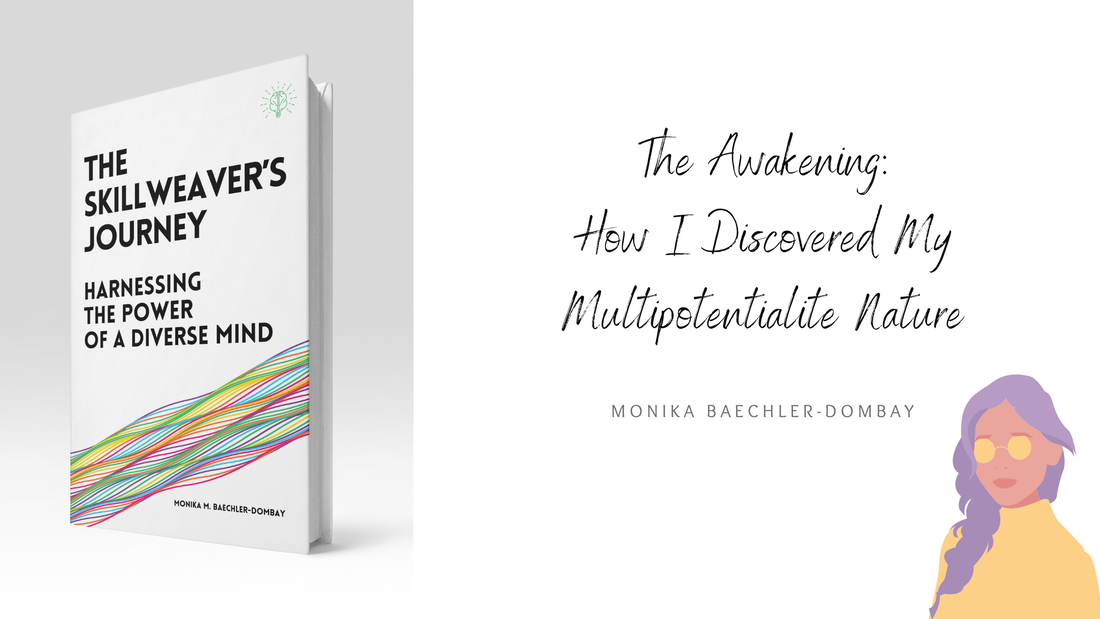

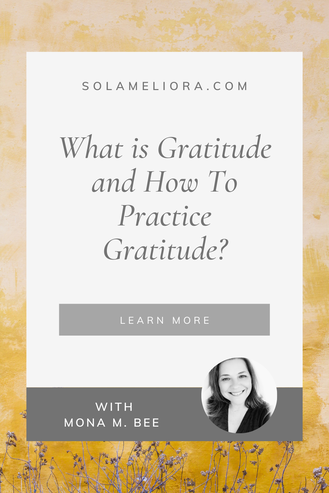
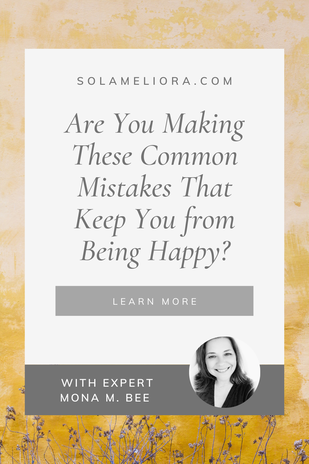

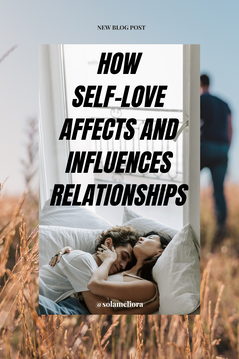
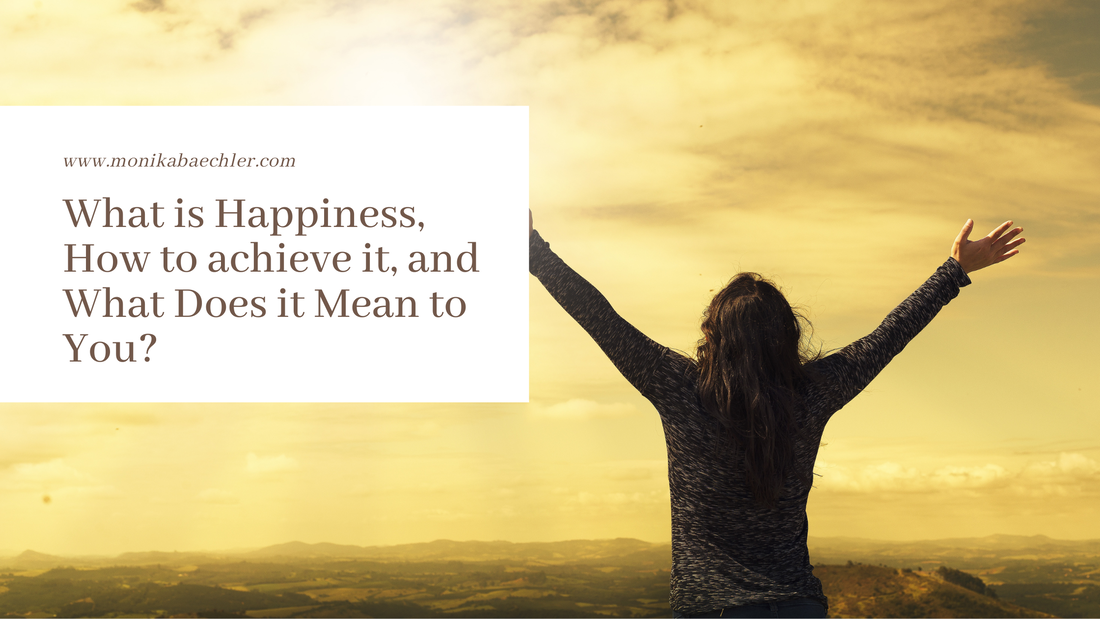



 RSS Feed
RSS Feed